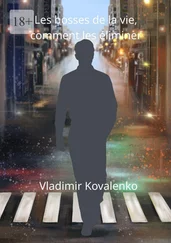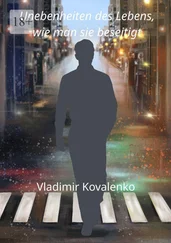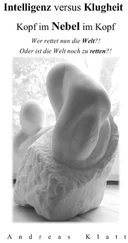Lojze Kovačič - Newcomers
Здесь есть возможность читать онлайн «Lojze Kovačič - Newcomers» весь текст электронной книги совершенно бесплатно (целиком полную версию без сокращений). В некоторых случаях можно слушать аудио, скачать через торрент в формате fb2 и присутствует краткое содержание. Год выпуска: 2016, Издательство: Archipelago, Жанр: Современная проза, на английском языке. Описание произведения, (предисловие) а так же отзывы посетителей доступны на портале библиотеки ЛибКат.
- Название:Newcomers
- Автор:
- Издательство:Archipelago
- Жанр:
- Год:2016
- ISBN:нет данных
- Рейтинг книги:3 / 5. Голосов: 1
-
Избранное:Добавить в избранное
- Отзывы:
-
Ваша оценка:
- 60
- 1
- 2
- 3
- 4
- 5
Newcomers: краткое содержание, описание и аннотация
Предлагаем к чтению аннотацию, описание, краткое содержание или предисловие (зависит от того, что написал сам автор книги «Newcomers»). Если вы не нашли необходимую информацию о книге — напишите в комментариях, мы постараемся отыскать её.
Kovačič meticulously, boldly, and sincerely portrays the objective, everyday world; the style is clear and direct. Told from the point of view of a child, one memory is interrupted by fragments and visions of another. Some are innocent and tender, while others are miserable and ruthless, resulting in a profound and heart-wrenching description of a period torn apart by conflict, reflected in the author's powerful and innovative command of language.
Newcomers — читать онлайн бесплатно полную книгу (весь текст) целиком
Ниже представлен текст книги, разбитый по страницам. Система сохранения места последней прочитанной страницы, позволяет с удобством читать онлайн бесплатно книгу «Newcomers», без необходимости каждый раз заново искать на чём Вы остановились. Поставьте закладку, и сможете в любой момент перейти на страницу, на которой закончили чтение.
Интервал:
Закладка:
The sergeant lived with his wife Mira in a modestly appointed room of a villa near the railroad tracks … next to the Falcons’ gymnasium … Aside from a wardrobe chest and their bed, the only furniture consisted of several big, gray-green wooden suitcases with heavy locks … The fact was the officers and NCOs were constantly on the road, first in one Yugoslav province, then in another … They had big, embroidered sheer curtains on their windows … I was amazed to see that military commanders had such poorly furnished homes … It bothered me that they lived in accommodations as makeshift as ours … It would be fine if these were fortifications, shacks, guard posts at the front, or in disputed territory … But to live like this with all their dress uniforms, sabers, braids, and medals … The sergeant had a friend who was also a sergeant and who enjoyed seeing Clairi … I didn’t see that either one had a pistol, a machine gun, or an automatic rifle … They hung their sabers over the knobs on their night tables. What kinds of commanders were these?… They had big diplomas, solemn oaths in frames hanging on their walls … with the royal coat of arms in gold and crossed swords … “I will defend and protect the Kingdom of Serbs, Croats and Slovenes, the Yugoslav homeland …” I stood looking at these, full of admiration and doubt. How was it possible that they had these solemn vows on their walls for all to see, when all of them were against the king and the state … when they had no intention of protecting and defending the border when Hitler attacked … When all of them supported him … I looked at both sergeants and others who came to visit them … These couldn’t be real soldiers, commanders … True, they wore the uniform, but more the way any woman wears a fur coat. I didn’t want to believe this … I found out that they did in fact have pistols, which they would take out of boxes to clean the hammers, polish the barrels with oiled cleaning rods, and shoot with, too … I saw one of those decorated commander’s uniforms come off once, revealing skin like other people had … vaguely disgusting, white human flesh with black bristles, devoid of taut muscles, tendons, any firmness at all … a kind of lazy, disintegrated human machine like the bodies of ice cream parlor attendants or cooks … And finely articulated hands with polished nails, as though they never did any work and just picked their noses or something. These were supposed to be warriors?… I couldn’t believe it … but then they got back into their coarse uniforms, put on their belt straps and sabers … the soldiers outside the house saluted them, all turned to stone, as though they had gods in front of them! I was full of doubts … they gnawed at me … everything was so fuzzy, double and triple … If these weren’t actual, loyal soldiers, they weren’t actual sworn enemies, either. If they were traitors, they couldn’t have been true friends of the enemy, either. They were nothing … neither civilians nor soldiers, not people, not men, not priests, not Gypsies … I still enjoyed going to visit them, because I kept hoping that everything I’d seen on my previous visits had just been an illusion or a deception, and that any day now … I was going to stumble onto their true image as warriors … firm, decisive, hardened men, full of plans and concerns … old Indian souls who had a vision of life and could show you the right way: Sky … Earth … Clouds … But instead …
One Sunday all five of us had our picture taken under the arch of the railway viaduct, so that it looked like we were standing in front of some fortress made of hewn rock … At least they would have that to point to … Then we went down to the restaurant next to the quarantine hospital … along the way the other sergeant kept putting his arm around Clairi, but she gave him no sign of encouragement. Soldiers were like Gypsies for her … completely undependable people … plus they could get killed at the front. “Heute da, morgen Gott weiß wo …” §The tavern was noisy and smoky. Someone was playing the accordion. And they were singing. And dancing. All of them had faces as red as tomatoes. Even Jože was here in his best suit, with Tončka. Clairi’s friend Marica from the ice cream parlor with her big, fleshy fiancé, an insurance salesman. We ate pretzels and they gave me a glass of wine to drink … All three women kept talking about dying their hair. For the first time I felt a cloud in my head and something as hard as a rock pressing against my forehead … I mumbled the songs that the others were singing … Jože and Marica’s fiancé asked me to sing something … Over a full ashtray that still had smoke coming out of it, I sang the aria from Carmen that Zdravko had taught me … “Toréador, en garde, toréador, toréador …” and when I finished half the tavern applauded …
*
The cheap vegetable season
†
Well what do you know … You don’t say … Is that possible?
‡
We want to do everything necessary to make sure that the species called human being remains nothing more than an accident, a transitional phase.
§
One place today, God knows where tomorrow …
One Day
ONE DAY a small package containing a wristwatch arrived from Basel. Margrit had sent it. The watch had a gray wristband and was packed in cotton. I put it on when I went to school in the morning … Now I was almost like the other students. If I’d had boots, corduroy knickers, a light blue sweater with a white shirt, a leather briefcase and a Pelikan fountain pen, I would have attained the ideal … But I had a pair of Vati’s old trousers, a shirt that mother had made for me from one of her blouses but that still looked like a girl’s shirt, and the same old canvas backpack for books … Worst of all were my shoes, which a nun at the St. Vincent’s conference had given to me. They had high, narrow heels and you fastened them with little hooks way up over the instep, practically over the shin. And if you added my strange accent and the way I mixed up genders and cases when I talked … which made my classmates laugh … I wasn’t just funny, I was hilarious, a regular laughingstock … The heels on the boots from the nun were so high that I rubbed clay on them to make them seem shorter, so that people at least wouldn’t tease me around town, because I was as wobbly walking in them as I would have been wearing stilts … Now I had a watch … All my schoolmates came flying like bees to honey to look at it on my wrist. This watch was the height of fashion, even though it told time the same as any other watch … One morning mother asked me to leave it at home, because they didn’t have any other timepiece. I reluctantly took it off my wrist. She hung it on the nail in the wall, which was where she kept the electric bill … When she hung it up, I wanted it back, but she soon got me to change my mind … Every day when I came home from school, the first thing I did was look at the nail over Vati’s head, to see if it was still hanging there by its band … One day the nail was bare. I broke out in a cold sweat … “Sie wollte nicht mehr weiter. Wir mussten sie zum Uhrmacher tragen …” *mother said … That exquisite watch had broken down?… I didn’t know what to do. “Wann wird sie repariert?…” †“In einer, zwei Wochen …” ‡It took a long time … A week passed. Which watchmaker had they taken it to? I asked … if they had taken it to the arcade under the Skyscraper, the repair would cost a fortune. “Die Frau Guček hat sie zu einem befreundeten Uhrmacher in die Altstadt getragen …,” §mother said. Mrs. Guček, that crazy old loon whom you couldn’t trust with a pin …
The second week passed, then a third … There was still no sign of the watch. One day I noticed it on the wrist of the merchant Bojadamič’s long-legged son. He was out playing in the yard. He was walking along the ledge of the wrought-iron fence, holding onto the uprights, when I noticed the gray watchband with the big chrome onion on his wrist … “Vehr to you haff zat votch fromm?” I asked him respectfully, because he was an awful dolt … “What do you care!” he answered with the same dismissive sneer on his pale face that I’d grown used to from this sort of boy … He squatted down and fixed his button-like eyes on me through the fence until I gave up and went back to the other side of the street … Pigs! So they’d given it to the merchant because they owed him for groceries … I stormed upstairs, kicked the door open and yelled, “Ihr habt …” I summoned heaven and hell down to earth … I raged like Vati … rammed my head into the wall … bit my tongue as I roared, so that it swelled up like a donut … ran out into the hallway to catch my breath … and there was the old lady already with her stepdaughter, come out of their broom closet to enjoy the fun … I stormed back inside … blood was trickling from my lips, it was getting dark before my eyes … I was suffocating and felt I was losing consciousness … “Nein, nein, wir haben die Uhr nicht mit dem Spezeristen umgetauscht, wir haben sie nicht verpfandet … sie war so kaputt, daß der Uhrmacher mit ihr nichts anfangen konnte … lauter Räder und Federchen …” ‖mother said … She was lying, that was obvious, it was written on her forehead in big letters … They were all lying! It was only my indignation and rage that gave them cover not to feel anything … They had sold the watch or bartered it for food that I, too, had eaten … “Gritli wird dir eine andere schicken …” aOh, sure, that’s exactly what she’ll do!.. I ran downstairs suddenly … The old lady and her ward were still standing by the faucet, though enjoying themselves less … I almost flew across the street, I was so pumped full of rage … I walked up to the counter. Big-nosed Bojadamič came out of the back room. Do we owe you anything? I asked … “Not anymore, everything’s been settled …” I began to feel afflicted … “Die seelischen Qualen sind stets erhabener als die körperlichen,” bMrs. Guček had told mother … I had stopped going to buy things at the store up there, the biggest one on the block and in the whole neighborhood, because they had once caught me trying to steal carob beans … There was another, smaller store on the other side of the street, close to the train overpass … In a small, dark window amid little painted cardboard cases hanging on threads, for such was the marketer’s art … there were stacks of carobs, walnuts, almonds, hazelnuts, prunes, and little chocolate truffles … I went to the tobacconist lady and, without looking through the slot at her puckered mouth, I said that if she could lend me seven dinars on my parents’ account, I would use it to buy a bag of firewood … She gave it to me without any hesitation and without a receipt … I bought a whole bagful of carobs, a bag of almonds, a kilo of prunes, cinammon, chocolate-coated bananas … Across from the store there was something like a little plot with a well that had dried up … I brushed the powdery snow off its ledge, it was the end of October, and I spread my sweet banquet out … the saliva and juices were collecting all through my head … my body craved tons of sugar … I devoured it all in an instant … I did manage to put one of each item in a bag for Gisela, which I was going to put in our hiding place for her, the hollow space under the cushioned chair, from which later, when no one was left in the room, we would take things that we meant to hide from the grown-ups … A week later I went back to the tobacconist lady … this time with a sheet of paper rolled up into a little pipe, and I asked her for twice as much money as the first time … I ate quickly … a half kilo of marmalade this time … which I ate with my fingers straight out of the wrapping paper. This time I sensed I had overstepped the bounds of what was permissible … my punishment was already waiting for me with no right of appeal … it was already descending … I headed out onto St. Martin’s Road to invite one of the soldiers from the hospital who were always selling me sourdough bread to go to the movies with me … None of the orderlies, all of whom I at least knew by sight, were anywhere to be found. So I stopped across from a soldier who was standing outside the front wall of the Šlajmer Clinic, looming over the foliage of a laurel hedge that reached up over the sidewalk, cleaning his comb with some leaves. “Živio!” cI greeted him. He was wearing a cape, and under its hood a cap with a badge and thick combat boots instead of the usual foot wraps. He was from an upland division, the mountain artillery … I would have preferred an infantryman, because I didn’t know the gunnery side of the army that well. He was glad to have company. “Do you want to go with me to the movies?” I asked. He was immediately in … they had released him from the hospital and now he had the whole live-long day until his train departed. At last I had company, too … We went to the Kodeljevo Theater, I bought two tickets in the first row and we ate two portions of Turkish delight in the lobby … I was very pleased to be able to treat him and he was embarrassed, but grateful, then went back to normal, then was surprised once again as he sat next to me in the chilly auditorium, wrapped in his cape, showing me his bayonet and eating more Turkish delight out of wrappers … I was proud and full of joy when during the movie I observed in the glow of a heater that showed through some hole in the wall the effect my manna was having as I continued to shower it on him from the sky. We watched a double feature … After the show I walked with my mountaineer in his studded army boots to a building that had a fresco of the four seasons on its facade … there I quickly bought him three Ibar cigarettes, we shook hands and he said goodbye … he went marching off to his train … it was the end of a beautiful day and I returned home completely worn out …
Читать дальшеИнтервал:
Закладка:
Похожие книги на «Newcomers»
Представляем Вашему вниманию похожие книги на «Newcomers» списком для выбора. Мы отобрали схожую по названию и смыслу литературу в надежде предоставить читателям больше вариантов отыскать новые, интересные, ещё непрочитанные произведения.
Обсуждение, отзывы о книге «Newcomers» и просто собственные мнения читателей. Оставьте ваши комментарии, напишите, что Вы думаете о произведении, его смысле или главных героях. Укажите что конкретно понравилось, а что нет, и почему Вы так считаете.












